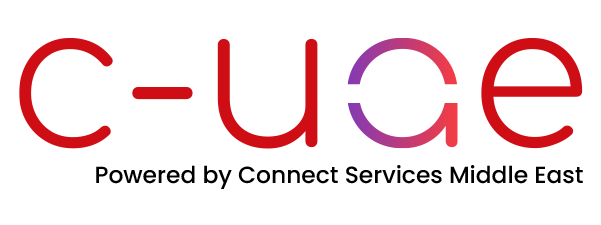In this article, you will learn about the designated zones in the UAE and how they impact business growth. The UAE is one of the largest economies in the world. It has one of the most open trade regimes in the Gulf region.
Due to it, the country is focused on economic diversification, from natural resources trade such as oil exportations to other economic methods like real estate, tourism, logistics, and providing financing for diverse areas.
For this reason, the UAE is a great opportunity for entrepreneurs who decide to set up a business abroad. It also occupies a stable political system with favorable tax and free trade zones which provide, with certain limits, free zones that allow a low or no tax regime and overseas ownership.
One of the most outstanding topics when discussing business in the Mainland is the designated zones in the UAE and here, we give you a full guide about it to make you improve your business.
1. Designated Zones
In general, it is a geographical area reserved for industrialization and export purposes, characterized by a series of legislative and economic advantages that favor the development of foreign trade activities.
The designated zones in the UAE are VAT-free zones, which implies that when a company carries out any type of transfer of goods within or between designated zones, it will be exempt from VAT.
1.1 Difference between Free zone and Designated zone.
As mentioned above, all designated zones in the UAE are the specific areas that are outside the Value-Added Tax payment. On the other hand, in the free zone, all companies, businesses, or transactions will be taxed at the usual VAT rates.
This article may be of interest to How to Pick the Finest Freezone for Your Business in the Land of the Emirates

1.2 Conditions that a zone must meet for the State to consider it as a designated zone.
The cabinet makes the decisions regarding the designated zones in the UAE and these, in turn, should meet certain conditions or criteria to be considered designated zones outside the UAE territory. They have to fulfill the following criteria:
The zone must be in a specific and fenced geographic area.
They must have customs controls and all the necessary security measures to monitor the movement of goods in general and the traffic of people.
It will have all the internal procedures together with well-defined regulations regarding the method of storage, keeping, and processing of merchandise within the designated area.
The operator of the designated zone must abide by and carry out all the procedures established by the Authority.
Read About: Invest in Dubai : How to get your Partner’s Visa today?
1.3 Here is a list of free zones and designated zones in the UAE.
1.3.1 Abu Dhabi
- Free Trade Zone of Khalifa Port
- Abu Dhabi Airport Free Zone
- Khalifa Industrial Zone
- Al-Ainsome situations generate International Airport Free Zone
- Al Butain International Airport Free Zone
1.3.2 Dubai
- Jebel Ali Free Zone (North-South).
- Dubai Cars and Automotive Zone (DUCAMZ).
- Dubai Textile City.
- Free Zone Area in Al Quoz.
- Free Zone Area in Al Qusais.
- Dubai Aviation City.
- Dubai Airport Free Zone.
- International Humanitarian City – Jebel Ali.
Dubai is a great idea to set up your business, in this article, we give you several motives Why Should Set Up Your Company in Dubai Mainland
1.3.3 Sharjah
1.3.4 Ajman
1.3.5 Umm Al Quwain.
- Umm Al Quwain Free Trade Zone in Ahmed Bin Rashid Port.
- Umm Al Quwain Free Trade Zone on Sheikh Mohammed Bin Zayed Road.
1.3.6 Ras Al Khaimah
- RAK Free Trade Zone.
- The RAK Maritime City Free Zone.
- RAK Airport Free Zone.
1.3.7 Fujairah
- Fujairah Free Zone.
- Fujairah Oil Industry Zone (FOIZ).
If one of these caught your attention, we offer you this Complete Guide on Setting up a Business in UAE Free Zones
1.4 Businesses and supplies in a designated zone.
Any organization or person carrying on economic activity in UAE and making taxable supplies will be registered for VAT purposes.
Nevertheless, every company that registers in one of the designated VAT zones in UAE will have an economic model (supply and demand) different than a VAT registered organization.
Although it is true that when a company carries out transactions in designated zones these are VAT-free. Not all have the same benefit, some supplies may attract 5%. In fact, the State will not tax only the supply of goods that meet certain conditions.
2. Supply of goods within designated zones?
The State considers outside the territory and subject to the payment of VAT all supplies of goods or tangible goods that are within one of the designated zones in the UAE.
However, it should be noted that there are some cases in which this rule does not apply. As an example, to those who intend to use the goods within the area for private purposes and not to carry out any economic activity that includes transforming, reselling or manufacturing another good.
The reason for this is that all goods purchased must be related to the goods produced for the State to consider them outside the scope of VAT. If seen from the financial point of view, they are more investment goods, so they must generate new economic activity.
The following are some cases, thus facilitating the understanding of the subject.
- All transactions of purchase and sale of goods for the purpose of resale.
- If the company supplies the goods within the same designated zone to form part of another good and if the good is not consumed in another designated zone.
- If the company supplies a good in one of the designated zones in the UAE to be used for the production of another good, provided that the good is not consumed within the same zone.
2.1 Processes for the transfer of goods to a designated zone.
General rules that apply to the transfer of goods to a Designated Zone prescribed in the United Arab Emirates Executive Regulation:
- From outside the UAE to a Designated Zone: In this case, the companies move the goods from outside the UAE to another point outside the UAE. Therefore, they are outside the scope of VAT.
- From the UAE mainland to a Designated Area: The government does not consider these types of cases as an export of goods from the UAE. Consequently, they analyze and tax these cases as making as a local supply.
- Transfer of goods between Designated Zones: The government considers these types of transfers outside the scope of VAT. As long as the transfer of the goods between the respective designated zones is not altered. And the transaction complies with the rules established under the GCC Common Customs Law.
2.2 Criteria you have to follow to supply goods free of VAT.
- During the transfer between one of the designated zones in the UAE, the company should not deliver the goods.
- Companies must comply with customs suspension regulations when transferring goods.
- There must be no modification or use of the goods during the transfer.
- The owners of the goods must provide a monetary guarantee if they do not meet the conditions for the supply of goods between designated zones in the UAE.
- Besides, 5% VAT is applied in the case of supplies of goods to and from the continental United Arab Emirates.
2.3 For the importation of goods in Designated zones.
When a company moves a good from a designated zone to the mainland. Then the State considers it as importation and taxes it as an importation.
Nonetheless, some situations generate VAT on the purchase of goods within the designated zones in the UAE.
Scenarios may occur such as when a company makes a purchase subject to VAT. And then during import from the designated zone to the mainland, it can regain the VAT payment. As long as there are no intermediate transactions during the purchase.
This does not mean that the State cannot charge the VAT again in the event of a sale of the goods within the UAE Mainland and during the date of supply.
3. How is the process for the VAT treatment of the supply of services within designated zones?
When it comes to the provision of services within the designated zones. Then the government considers the place of supply of services to be inside the State of UAE. This means that they will provide and tax the service according to the regular VAT rules.
In other words, it will not have concessional treatment within the designated zone.
However, the State may consider the zero-rated transfer if the company exports the service from the designated area outside the GCC states.
4. How is the process for the VAT treatment of water and energy supplies in designated zones?
The state considers all water and energy supplies, ranging from electricity, water, and various types of gases, within designated zones in the UAE as supplies of goods. Meaning they are outside the scope of VAT as long as the company trades the goods within designated zones. Otherwise, they are subject to VAT.
5. Designated zones in the UAE, a great opportunity for business growth.
Investment plans can be a great growth opportunity when the investor makes the right decisions. Mainly because by deferring the tax payments until the sale of the asset they can save a considerable amount of money and use it for other projects.
In the United Arab Emirates, it is much simpler and faster to register a company within a designated zone than outside it.
In addition, these zones allow 100% foreign ownership attracting investors from all over the world. Hence the number of international companies that found the free zones as a good location to establish their business.
If we analyze the case, it is quite understandable since any company in UAE making supplies or receiving goods from a designated VAT zone following the necessary criteria will be able to handle goods even to cross the United Arab Emirates border.
If you are interested in starting a business in UAE, these Steps to Starting a Business in UAE will help you.

6. Get professional assistance about Business in UAE with Connect Service Middle East.
Business opportunities abound in UAE and Connect Service Middle East offers a wide range of quality assistance to help you make the best decisions regarding your business.
Whether you are already established, growing, making some situations generate or looking to grow. And for those who are thinking of investing abroad, UAE is a great option that can guarantee great results.
UAE has the largest number of free zones and designated zones of all the Gulf states. So, if you establish your business in UAE you will have a large repertoire of privileges. Such as tax exemption, 100% ownership of your company regardless of nationality, reduced paperwork and 100% repatriation of capital.
Although the UAE is an open and huge economy with many extensions to international trade. It has certain limitations in terms of operations within the territory. Such as the commercial license required to implement the processes of import or export outside the free zones. And customs declarations for imports entering the UAE.
Here we explain to you all you need to know about licenses in UAE Learn about the types of trade licenses and the Dubai trade license cost
It is of great importance that you consider all this if you want to establish your business in the United Arab Emirates territory, so it is necessary to work hand in hand with professional experts in the field who can help you and give you all the necessary advice to grow your business and avoid losses in the process.
Connect Services Middle East accompanies you on the road to establishing and growing your business. By providing the right consultation with dedication, discipline, and commitment, always thinking about the well-being of our clients , Contact us for enquiry regarding Company Formation in Dubai | PRO Services in Dubai | Business Setup in Dubai



